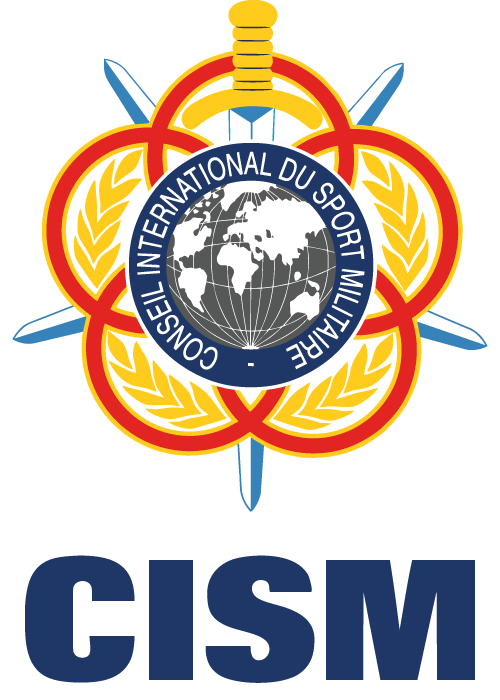Meet our PCSC - Episode 1 - Colonel Gernot Rittenschober, PCSC Parachuting (AUT)
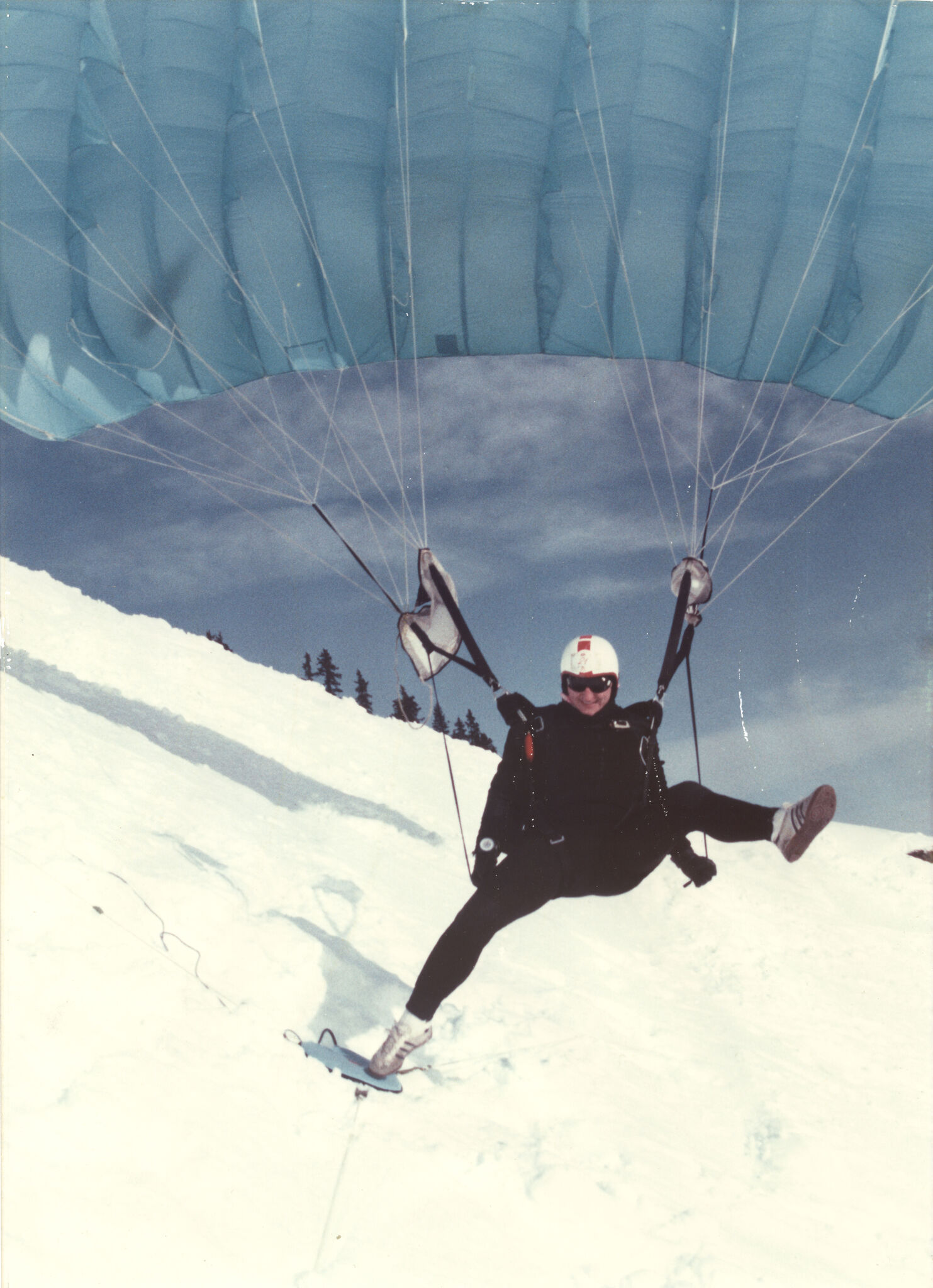 Gernot Rittenschober Paraskiing in 1985
Gernot Rittenschober Paraskiing in 1985
BRUSSELS (BEL) - In the new year 2023, the CISM General Secretariat has decided to launch new communication initiatives. It is therefore with great pleasure that we present our new series "Meet our PCSC" which will focus on the journey and work of one of the essential links of the CISM family, the PCSC.
For the first episode of this series, we went to meet a long-time friend, Austrian Colonel Gernot Rittenschober, PCSC Parachuting and member of the CSC Parachuting for almost 29 years!
CISM HQ: "Dear Gernot, can you tell us about your professional background and how you got into CISM?"
Gernot Ritteschober (GR): "It all started in 1977 with my first jump in a civilian parachuting club close to my home and it continued with a career in civilian accuracy competition at national and international level. Later, in 1994, when I was a young officer and a part-time military skydiving competitor with almost 2000 jumps in the Austrian Airborne School, my then commander Colonel Wolfgang Pflegerl was appointed PCSC (at that time PTC President). We had just organized in Austria the 1st CISM European Championship in 1992 and the 24th World Military Parachuting Championship in 1994 and I had taken part in the organization of these events as a member of the Organizing Committee. Thanks to the experience gained during these events and my CISM and FAI judge's license, I was then entrusted with the position of PTC Secretary for the management of PTC documents and CISM referees. In 1999, when my Commander retired and his successor, French Colonel Jean Dermine, reiterated his confidence in me and kept me as his Secretary until 2011, when he also retired from CISM. After 19 years as CSC Secretary and having held the position of Chief Judge and Advisor to the organizers of the World Military Parachuting Championships, it is with great pride that I was finally elected as PCSC with a first mandate that started in January 2012."
CISM HQ: "How were your first steps as a PCSC Parachuting?"
GR: "I had a rough start. Indeed, my mandate started in 2012, just after the Military World Games in Rio 2011, and this coincides with the "dark years" of CISM. It was indeed very complicated to find host nations for our events and especially in Europe. For my first year as PCSC, I could not find a host nation and no traditionally strong country in Europe had come forward for the coming years. In the end, it was the city of Qionglai, near Chengdu, where I had participated in the 1994 FAI Civilian World Championships, that came forward to host the WMC in 2013. Although this 37th WMPC was the first World Military Parachuting Championship held in China's history, we were able to witness a quality event due to the strong tradition of competition in the Chinese Air Forces and parachuting. All the data related to the technical conduct of a WMC (detailed checklists) and completed over the past 20 years and 16 championships, proved to be of great help. After China, in 2014, we headed for Indonesia, which had recently joined the CISM and was organizing its very first CISM sports event. We had to take into account not only the technical aspects but also the whole organization of CISM events on the agenda of the preparatory visit. After this early start, all subsequent WMPCs until the most recent 45th WMPC in June 2022, which I was able to organize myself as Meet Director in Austria, were organized much more smoothly and with fewer surprises."
CISM HQ: "How would you define the role of the PCSC and its main responsibilities and obligations?"
GR: "All its information is described in the CISM Rules and Regulations, but I will highlight the following: the PCSC is the ultimate CISM Sport authority and oversees the technical conduct of a world military championship in a specific sport. He is also responsible for the promotion of his sport worldwide and supervises the drawing up of the world, continental and regional calendars for his sport up to five years in advance. He is also responsible for many other CISM sport-related tasks."
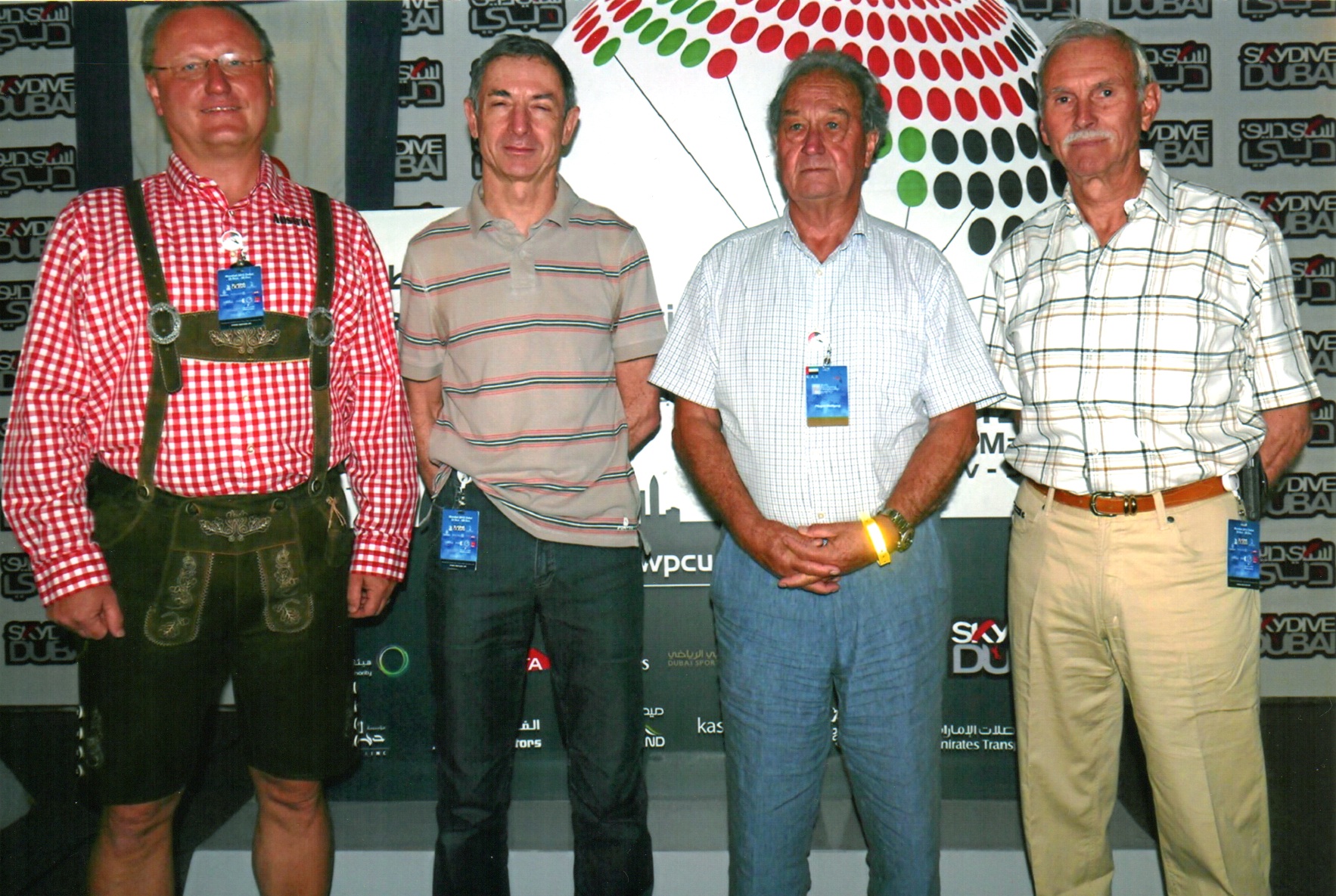 Picture of 4 PTC Presidents in 2012: R. to L. LtCol Grätzer / SUI (1983-1994) - Col Pflegerl / AUT (1994-1999) - Col Dermine / FRA (1999-2011) - Col Rittenschober/ AUT (2012-2024)
Picture of 4 PTC Presidents in 2012: R. to L. LtCol Grätzer / SUI (1983-1994) - Col Pflegerl / AUT (1994-1999) - Col Dermine / FRA (1999-2011) - Col Rittenschober/ AUT (2012-2024)
CISM HQ: "What were some of the major challenges you have encountered in your career?"
GR: "Among the main challenges encountered, I would say that it is complicated to find CISM nations / delegations capable of organizing a technically demanding and truly military sport like parachuting and willing to provide the logistical resources to host about 400 participants from 35 nations. This is a constant challenge. The change of rules during my first term was also almost fatal to my career in CISM. Indeed, from one day to the next, the PCSCs suddenly had to stand for re-election after a four-year term whereas previously a constant evaluation of the work of the PCSC was done by the Secretary General who decided with the Board of Directors whether or not to renew the mandate of the PCSC. This change in rules virtually ended my time at CISM because at the time my Ministry of Defense wanted to save money and all they had to do was not send my letter of application. Fortunately, that was not the case, and my second and third terms (ending in 2024) as PCSC went smoothly, except for the absence of WMPC in 2023 due to the cancellation of the 8th Military Summer World Games."
CISM HQ: "Tell us about your collaboration with FAI to develop the promotion of parachuting and CISM events"
GR: "When I started in 2012, my predecessor had already established a very good relationship with the FAI and the International Parachuting Commission (IPC, now International Skydiving Commission- ISC) within the FAI. As a multiple world champion, Jean Dermine was an expert member of the IPC Style and Accuracy Committee. In 2012, under my coordination, CISM signed a two-level Memorandum of Understanding with the FAI. This MoU was first signed by the two Presidents of FAI and CISM and then between IPC and the CSC Parachuting. Since then, we have managed to avoid conflicts in the dates of major championships, we use the same technical standards and judge training methods, our WMCs are 1st category events indicated by the FAI and at CISM championships FAI records can also be set."
CISM HQ: "How do you handle the ever-changing rules and regulations in the parachuting world?"
GR: "Each year we update our rules and publish a new edition of the CISM Parachuting Regulations on www.milsport.one. Sometimes FAI/ISC changes need to be incorporated so that "dual use" competitors and judges do not have to train differently for FAI and CISM events. And sometimes it is CISM that initiates rule changes that are then adopted by the IPC/ISC. The general philosophy of CISM Parachuting is to change rules only when necessary to clarify or help participants and officials. We try not to go into too much detail as we trust the designated officials (Meet Director and Chief Judge) to make intelligent decisions if something unexpected happens.
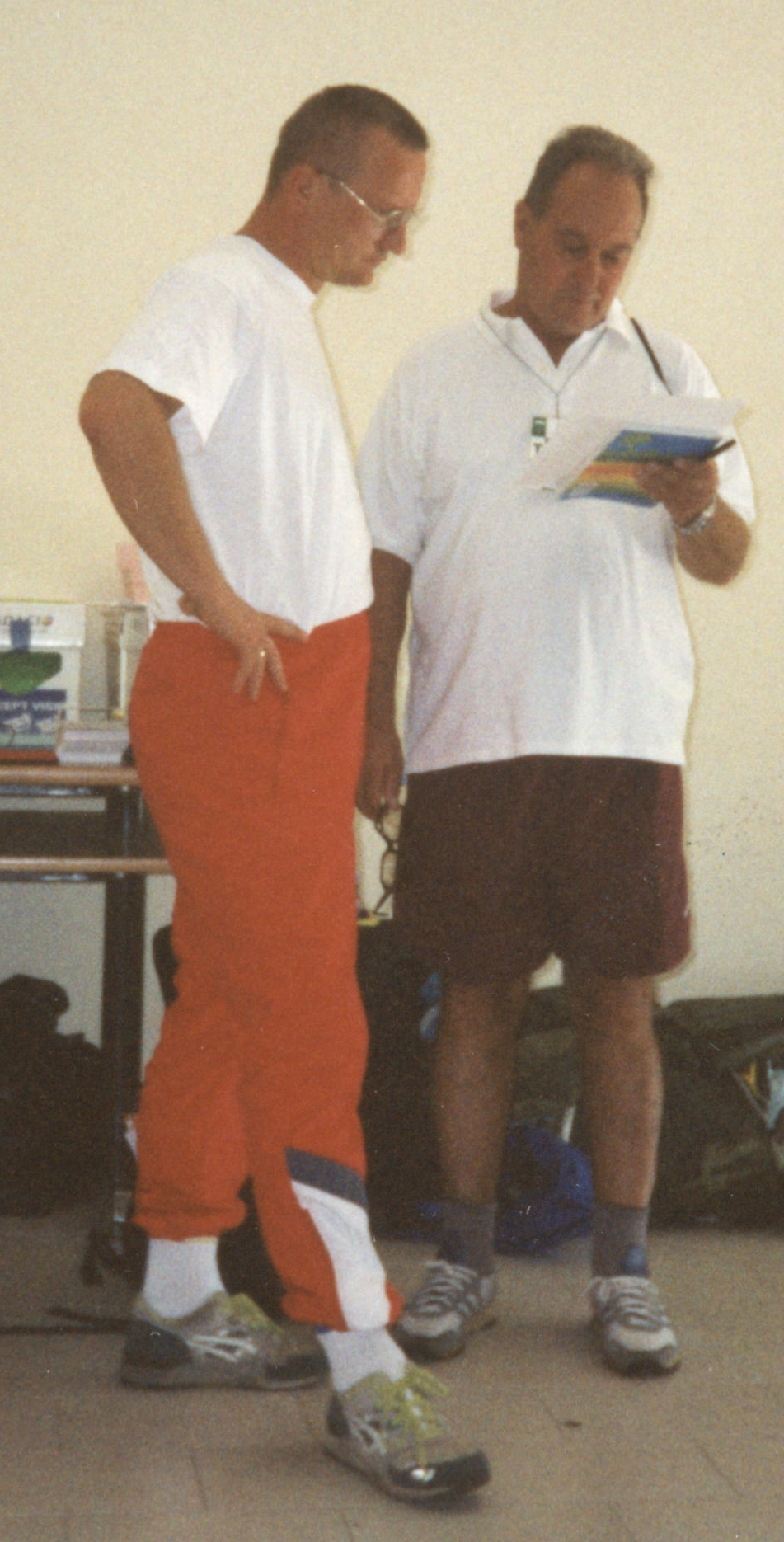 PTC President Col Plegerl with his Secretary Capt Rittenschober in 1994
PTC President Col Plegerl with his Secretary Capt Rittenschober in 1994
CISM HQ: "In what ways do you work with local authorities to run safe skydiving competitions?"
GR: "We have an unwritten rule (a strong request from the PCSC) that a future WMPC host country must hold a smaller scale championship or CISM tournament about a year before the actual WMPC. This identifies most of the gaps, is good training for local support staff, and all technical aspects and security measures can be tested."
CISM HQ: "Have you encountered any crisis or emergency situations during parachuting competitions?"
GR: "Fortunately, we have never had a plane crash, serious injury, or even death in skydiving during any WMPC I have attended. We have a one-page checklist that can be used by the host country organizing committee, and all the steps for crisis communication are outlined. A small crisis occurred in 2018 at the 42nd WMPC in Hungary, when a severe thunderstorm destroyed the entire drop zone and large tents were even blown away. One participant who tried to hang on to the tent broke his arm, car windows were shattered and It felt like a hurricane had passed over the terrain. But the engineers did a great job and after one day, the competition was able to continue as planned."
CISM HQ: "Another sensitive topic, are cheating and doping issues present in your sport?"
GR: "There is no doping problem in skydiving and in air sports in general. The World Anti-Doping Agency itself has rated air sports as low risk and without mandatory testing in the TDSSA list of all sports. At most CISM parachuting championships over the past 20 years, we have conducted doping tests which fortunately have all been negative. In the event of a positive doping test result, the full range of disciplinary actions through the responsible authorities will be supported by my CSC and athletes may be banned from future championships. Furthermore, technical cheating is something that almost never happens in skydiving. And if a competitor were to try to cheat, it is the judges' job to find out and then sanction the athlete”.
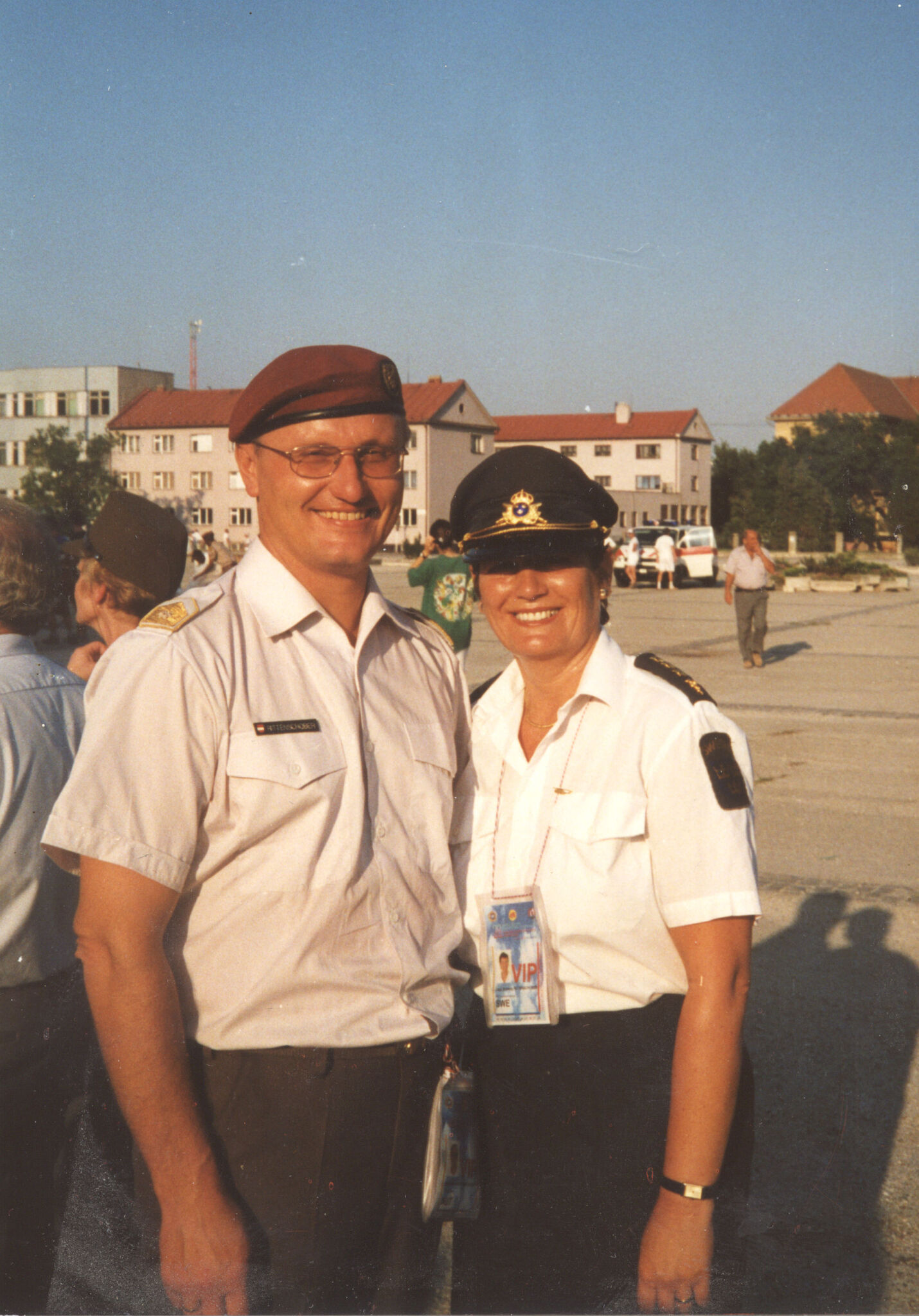 Memories from the 28th WMC Parachuting in Lucenec (SVK)
Memories from the 28th WMC Parachuting in Lucenec (SVK)
CISM HQ: "What about the continuing education and development of judges and officials at parachuting competitions?"
GR: "We have had a clear rule for all judges since the early 1990s. Anyone with a CISM judge's license must take a refresher test every two years. The written tests focus on the rules and mainly on recent changes and differences with the FAI rules. For the practical tests, we use pre-recorded competition jumps and the work in the judging rooms is simulated on the video screen. The standards of the tests are synchronized with those of the FAI/ISC and our judging licenses are recognized by the FAI as Category 1 in style and accuracy."
CISM HQ: "What collaboration do you have in place with skydiving equipment manufacturers to ensure the safety and quality of their products?"
GR: "At every WMPC, manufacturers are invited to be on the ground and support our athletes. For example, we have a close cooperation with Helmut Cloth, the producer of CYPRES, who has developed special military and sport parachute versions of their automatic opening device for the reserve parachute. There is also a technical and safety committee within the FAI/ISC with whom we work closely to report any technical incidents. But the main channel for technical safety issues is not through the CSC but through a national airworthiness certification authority. And every skydiver is aware of the adage "if you have a problem with your reserve parachute, you have the rest of your life to solve it."
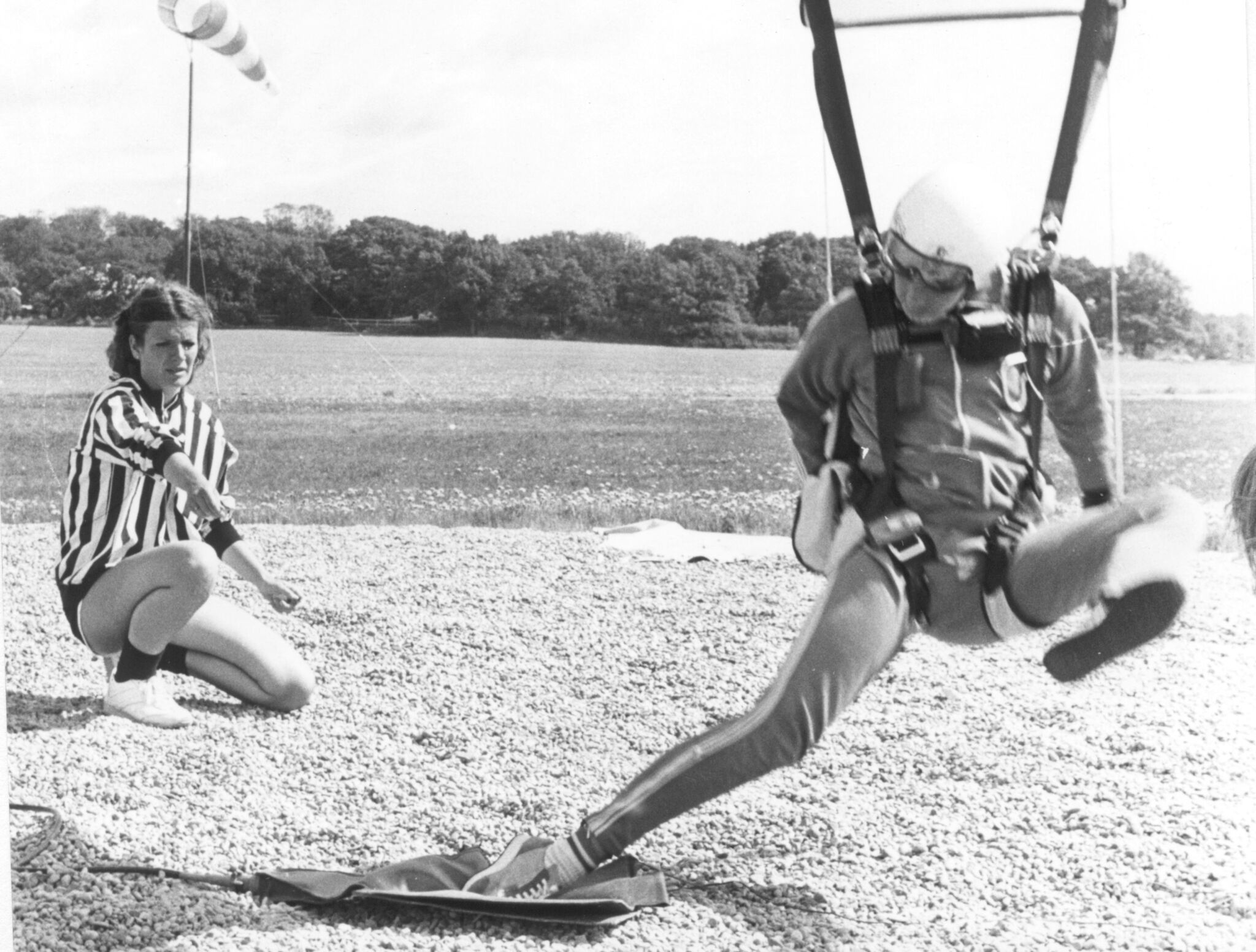 Capt Leifer (SWE) Parachuting Judge in 1981
Capt Leifer (SWE) Parachuting Judge in 1981
CISM HQ: "At WMPCs, many nations come together. So you have to manage cultural differences and language challenges in an international skydiving environment. How did you go about doing that?"
GR: "The key to resolving cultural and other differences is the CISM motto: "Friendship through Sport." Also, in parachuting, we have a strong military fraternity of paratroopers with common values and a military tradition of soldiers jumping from aircraft on the battlefield. The fact that at WMPCs, we usually spend an entire week on the drop zone, in tents close to each other, with plenty of time between competition jumps, also brings the participants closer together. As for the language issue, it was solved by my French predecessor Jean Dermine who eliminated French from our competition rules and installed English as the only language used. English is also the official language of the FAI and all international rules and regulations, and technical aviation documents are in English."
CISM HQ: "Tell us about the major trends and challenges facing your sport today and how you plan to address them?"
GR: "We face the same economic constraints as all sports in the services and military nations. It's obviously not cheap to fly planes that burn fuel and buy complete parachute systems that cost about €6,000 each. So, we have to show our generals, who hold the military budget, that there is a benefit. In parachuting, the direct link to military operations is visible, many of the participants in our WMPCs are parachute instructors or airborne soldiers in their home units and many participants bring their experience in military training. A short video that shows this connection between sport and operations is available at www.milsport.one/sports/parachuting."
CISM HQ: "As we close this interview, describe your favorite memory during your CISM career."
GR: "Without hesitation, the World Military Parachuting Championship in the early 1990s, where I met my wife Solweig, who at the time was the CISM Parachuting Judge for Sweden and also a member of the PTC responsible for women's sports. We have now been married for 25 years and CISM parachuting is still a common and happy story for us. There are of course many other wonderful memories and all the WMPC's I have been involved in preparing and running that have ended successfully are among them. Most recently, in June 2022, we organized the 45th WMPC in Austria. It was a great pleasure to lead this successful championship on my home soil and to see Austrian junior athletes on the top step of the podium, knowing that they were not even born when I started working for CISM.
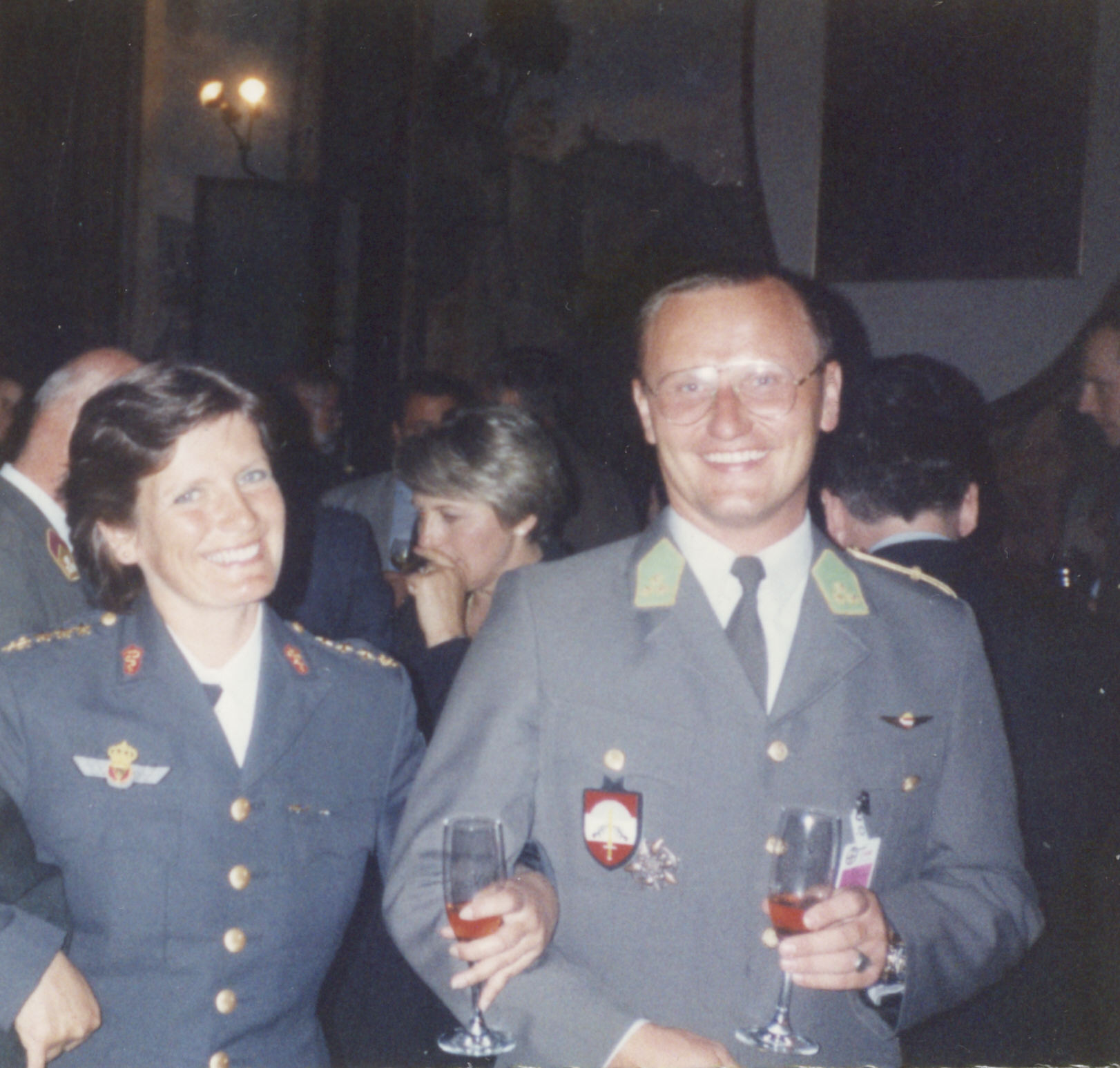 Capt Leifer (SWE) and Capt Rittenschober (AUT)
Capt Leifer (SWE) and Capt Rittenschober (AUT)
CISM HQ: "Any last words?"
GR: "At the conclusion of this interview, I wish to express a wish to all CISM Chiefs of Delegation from nations with active paratroopers, also known as "Paras." I ask you to consider organizing CISM parachuting activities on any scale, be it small CISM tournaments or WMPCs in order to support this true military sport of parachuting. CSC Parachuting experts are available to support local organizing committees and we have many examples of technical assistance with equipment, scoring software and even aircraft. The history of CISM Parachuting is long and all the data can be found at www.milsport.one/sports/parachuting."
"Friendship through Sport”, Colonel Gernot Rittenschober, PCSC Parachuting
(Interview from the CISM Media & Communication Department in collaboration with Colonel Gernot Rittenschober (AUT), PCSC Parachuting)

